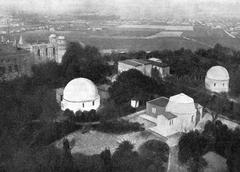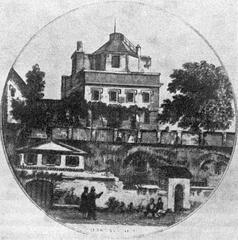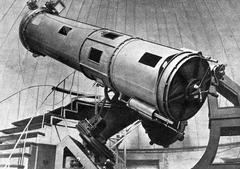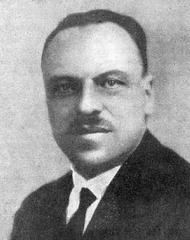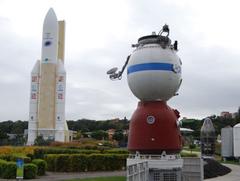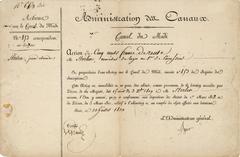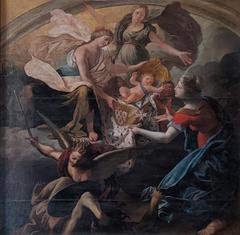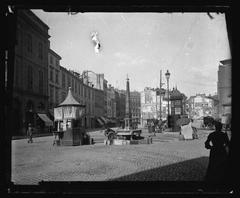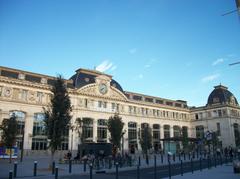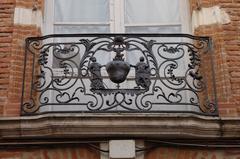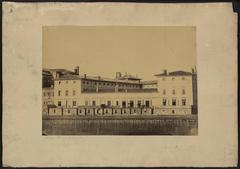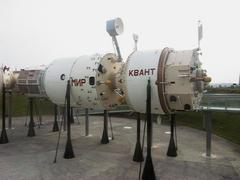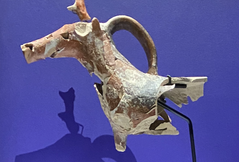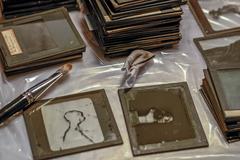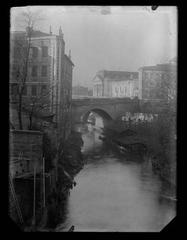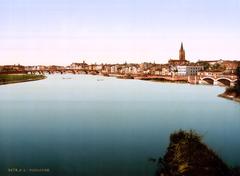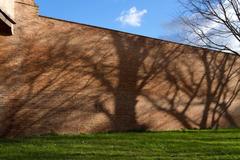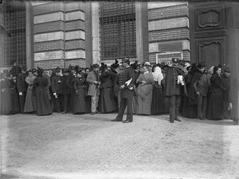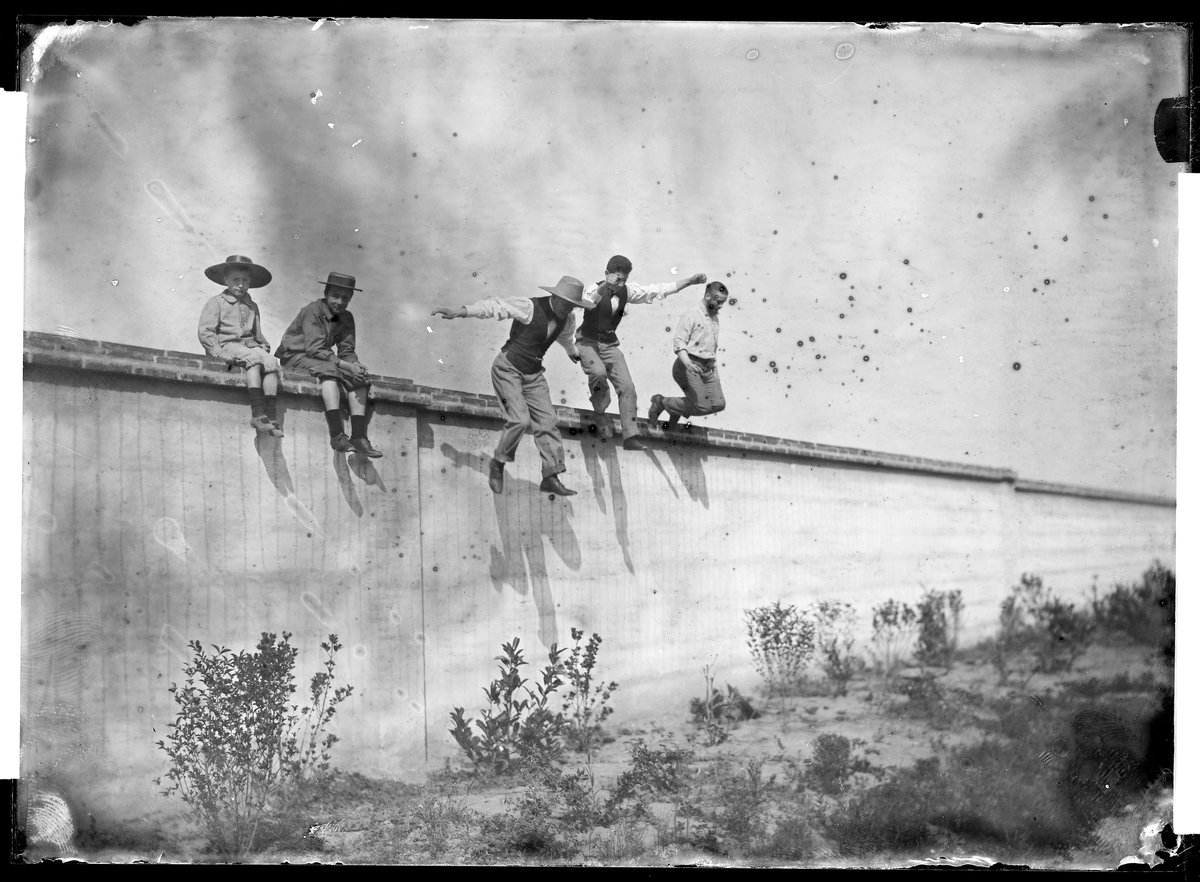
Toulouse Observatory Visiting Hours, Tickets, and Travel Guide
Date: 15/06/2025
Introduction
Nestled atop Jolimont Hill in Toulouse, France, the Toulouse Observatory (Observatoire de Toulouse) is a landmark of scientific discovery, architectural heritage, and public engagement. Established in 1846, this neoclassical observatory has played a key role in advancing astronomical research and remains a vibrant center for education and community events. Whether you are an astronomy enthusiast, a history lover, or a curious traveler, the observatory offers a compelling blend of historical insight, hands-on experiences, and panoramic views of the city.
This comprehensive guide details visiting hours, ticket information, guided tours, accessibility, and special events, as well as the observatory’s scientific achievements and its integral role in Toulouse’s scientific landscape. For the most current details and to plan your visit, refer to resources such as Toulouse Secret, France-Voyage, and the Alliance of Historic Observatories.
Table of Contents
- Introduction
- History and Architectural Heritage
- Scientific Contributions
- Education and Public Engagement
- Visiting Information: Hours, Tickets, Accessibility
- Unique Visitor Experiences
- Preservation and Modernization
- Integration with Toulouse’s Scientific Landscape
- Notable Figures and Legacy
- Annual Events & Festivals
- FAQ
- Visuals and Media
- Related Articles
- Contact and Further Information
- Conclusion
- Sources
History and Architectural Heritage
Founded in 1846 by the University of Toulouse and supported by the French government, the Toulouse Observatory was established to serve the growing needs of academic and navigational astronomy in the 19th century. Its original site atop Jolimont Hill was selected for its clear sky views and proximity to the city’s academic core.
The main building, designed by architect Urbain Vitry, is a neo-Gothic masterpiece accessed by a monumental staircase and flanked by distinctive round towers. Over time, additional domes and pavilions were built to house state-of-the-art telescopes and instruments. The Jolimont site is now protected as a scientific monument, reflecting its enduring importance to both Toulouse and the scientific community (France-Voyage).
Scientific Contributions
The Toulouse Observatory has made significant contributions to astronomy, including:
- Participation in the International Carte du Ciel Project: This ambitious late-19th-century initiative aimed to catalogue the entire sky through photographic plates, with Toulouse playing a key role (Alliance of Historic Observatories).
- Advancements in Celestial Mechanics and Stellar Cataloguing: The observatory’s research has informed the global scientific community for over a century.
- Modern Research: Ongoing collaborations with the University of Toulouse and the Pic du Midi Observatory have resulted in discoveries such as gravitational lensing in the Abell 370 galaxy cluster and the development of advanced astronomical instrumentation (Wikipedia).
Education and Public Engagement
Since its inception, the observatory has been dedicated to public education and outreach. Managed by the Société d’Astronomie Populaire (SAP), it offers:
- Free Public Observation Evenings: Every Friday (except the last Friday of each month), visitors can stargaze through historic telescopes.
- Monthly Public Lectures: Held on the last Friday of each month, featuring guest speakers from the scientific community.
- Group Visits and Educational Workshops: Tailored programs for schools and private groups, by appointment (Toulouse Secret).
Visiting Information: Hours, Tickets, Accessibility
- Observation Evenings: Fridays from 9:30 pm. No tickets or reservations needed for individuals; entry is free.
- Lectures: Last Friday of each month at 9:00 pm. Free admission; arrive early due to popularity.
- Group Visits and Special Events: Available by appointment; some events may require a fee. Contact the observatory for details.
- Address: 1 Avenue Camille Flammarion, 31500 Toulouse, France
- Getting There: Easily accessible by public transport (Jolimont metro station, Line A) and a short walk from the city center. Parking is limited; public transport is recommended (Visit Occitanie).
- Accessibility: The main building is accessed via stairs and may pose challenges for visitors with reduced mobility. Staff assistance is available upon request.
Unique Visitor Experiences
- Guided Tours: Volunteer-led tours offer insights into the observatory’s history, architecture, and historic telescopes, such as the Secretan Refractor (1873), Henry Brothers Reflector (1875), and Brunner Refractor (1880).
- Sky Observation Sessions: Weather permitting, attendees can observe celestial objects, guided by SAP volunteers.
- Special Events: The observatory participates in national events like La Nuit des Étoiles (Night of the Stars), European Heritage Days, and the annual Astronomy Festival, offering expanded programming and unique experiences.
- Photography: The site’s neo-Gothic architecture and panoramic views of Toulouse make it ideal for photography. Flash is discouraged during observation sessions.
Preservation and Modernization
Historic instruments are carefully preserved and maintained for public and educational use. Restoration efforts ensure the continued operation of vintage telescopes and the protection of architectural features. Some instruments, such as the Lennel transit instrument and Dollond telescope, are housed in museums, but many remain accessible to visitors (Wikipedia).
Integration with Toulouse’s Scientific Landscape
The observatory is closely linked with Toulouse’s vibrant scientific community. Collaborations with universities, museums, and the renowned Cité de l’Espace foster interdisciplinary research and public science education. Its location near other scientific and historical sites enhances its role as a hub for science tourism (EAGE Annual).
Notable Figures and Legacy
Over its history, the observatory has hosted leading astronomers whose contributions have shaped French and international astronomy, particularly in celestial mechanics, spectroscopy, and astrophotography. Archives and preserved instruments offer a rare glimpse into the evolution of astronomical research.
Annual Events & Festivals
- Astronomy Festivals: Participation in Nuit des Étoiles and the Fête de la Science, with extended hours and special programming.
- European Heritage Days: Behind-the-scenes tours and access to rarely seen instruments.
Frequently Asked Questions (FAQ)
Q: What are the visiting hours?
A: Public observation evenings are held every Friday from 9:30 pm (except the last Friday of each month, reserved for lectures at 9:00 pm).
Q: Are tickets required?
A: Most public events are free and do not require tickets. Group visits or special events may require reservations and a fee.
Q: Is the observatory accessible for visitors with reduced mobility?
A: The main building’s stairs may pose challenges, but staff assistance is available.
Q: Are guided tours available?
A: Yes, guided tours for groups are available by appointment; contact SAP for scheduling.
Q: Can children attend?
A: Absolutely. The observatory offers educational workshops and welcomes visitors of all ages.
Q: Are tours available in English?
A: Most activities are in French, but English-speaking guides are often available upon request.
Visuals and Media
Visitors are encouraged to capture the observatory’s neo-Gothic architecture, historic telescopes, and gardens. For online content, use descriptive alt tags such as “Toulouse Observatory historic building,” “Jolimont panoramic view,” and “historic telescopes at Toulouse Observatory” to enhance SEO.
Related Articles
- Discover Toulouse’s Cité de l’Espace: A Space Exploration Adventure
- Top Historical Sites to Visit in Toulouse
- Astronomy in France: A Journey Through Historic Observatories
Contact and Further Information
- Phone: +33 5 67 22 60 58
- Official Website: Société d’Astronomie Populaire (SAP) (French)
- Facebook: SAP Toulouse Facebook
For the latest updates on hours, events, and group bookings, consult the official SAP website or their social media channels.
Conclusion
The Toulouse Observatory is a unique destination blending historic grandeur, scientific innovation, and lively community engagement. With its free public events, guided tours, and educational programs, the observatory invites visitors of all backgrounds to explore the cosmos and Toulouse’s scientific heritage. To make the most of your visit, arrive early on observation evenings, check weather conditions, and use public transportation. Stay informed about special events and educational opportunities by following SAP’s official channels.
For more on Toulouse’s scientific landmarks, download the Audiala app and explore related articles. Your journey to the stars—and through centuries of astronomical discovery—begins at the Toulouse Observatory.

